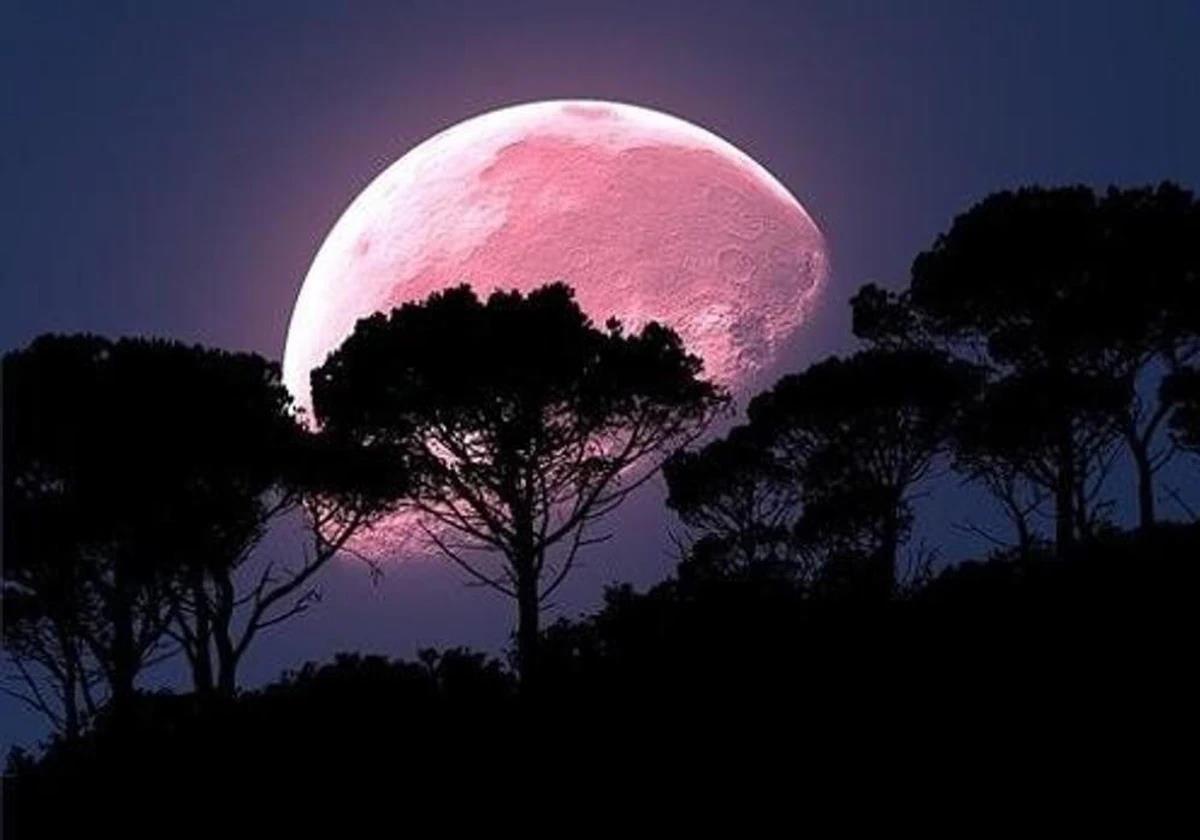

Sections
Highlight

J.M.V.
Cadiz
Sunday, 9 June 2024, 20:47
June is full of astronomical phenomena, from conjunctions of planets to star showers, and in this month, on the 20th, the solstice will arrive, marking the official beginning of summer in the northern hemisphere.
On 6 June the moon entered the new phase, disappearing from the sky for a few days. And there is a big date scheduled for the 22nd: the so-called strawberry moon, which will occur when the lunar disc is fully illuminated in the constellation of Sagittarius. The full moon will form at 3.07am (Spanish mainland time). In popular culture, the US publication Farmer's Almanac has popularised the name strawberry moon. But in reality, in astronomy, the full moon has no special name.
Javier Parra, from Cadiz, explained: "Astronomers get all worked up when they talk about strawberry moons, flower moons, wolf moons.... And this is because in the end this is a popular verbena, a product of the origin of pseudo-science or popular traditions, which have nothing to do with scientific rigour".
In short, scientifically speaking, we should simply talk about the full moon in June. The name strawberry moon comes from the Amerindian tribes and refers to the fact that at this time of the year the wild strawberry is ready for picking. "It's all mythology, mixed with cultures, many of them aboriginal, indigenous, from ancient times, or from the Middle Ages. The moon is always the moon and it doesn't change colour or change anything. If it changes, it is because of the earth's atmosphere. And in this case we won't see it pink or purple," says Parra.
He noted: "The strawberry moon is the name given to it by the Native Americans because it was the beginning of strawberry picking, but in other cultures, as in Japanese culture, or in other indigenous cultures, they have other names. The Japanese, for example, call it the honey moon, because it was the beginning of the honey harvesting season".
Although the name evokes images of a red or pink moon, in reality, the so-called strawberry moon does not look that colour: its name is more related to the time of year than to its appearance.
Historically, this phenomenon signalled a time of abundance and renewal. Wild strawberries, which ripen during this time, were a crucial source of food for many tribes. The full moon in June was therefore a time for celebration and preparation of reserves for the coming months.
Leaving the name behind, Javier Parra said: "The strawberry moon is the name given to the first full moon in June. There are several astronomical circumstances in this case, which are very curious to comment on".
He went into detail: "The first full moon of June will coincide with the first full moon of the summer. There is a much more interesting phenomenon, on an astronomical level, which is the solstice, and it will take place on 20 June, at nine o'clock at night, taking as a reference Zulu time, or Zulu, Z time, universal time... here it will be a couple of hours later, at around eleven o'clock at night. That's when summer officially begins.
That said, June will be a very interesting month as far as astronomy is concerned. The strawberry moon on the 22nd will be visible everywhere in Spain, if the weather permits. To see it from Andalucía, you only need to be in a place where the full moon is visible in the sky. The best places to see it are those with dark, clear skies, away from city lights and light pollution .
The full moon is visible from dusk, when it rises over the horizon, until dawn, when it sets again.
Publicidad
Publicidad
Publicidad
Publicidad
Esta funcionalidad es exclusiva para registrados.
Reporta un error en esta noticia

Debido a un error no hemos podido dar de alta tu suscripción.
Por favor, ponte en contacto con Atención al Cliente.

¡Bienvenido a SURINENGLISH!

Tu suscripción con Google se ha realizado correctamente, pero ya tenías otra suscripción activa en SURINENGLISH.
Déjanos tus datos y nos pondremos en contacto contigo para analizar tu caso

¡Tu suscripción con Google se ha realizado correctamente!
La compra se ha asociado al siguiente email
Comentar es una ventaja exclusiva para registrados
¿Ya eres registrado?
Inicia sesiónNecesitas ser suscriptor para poder votar.